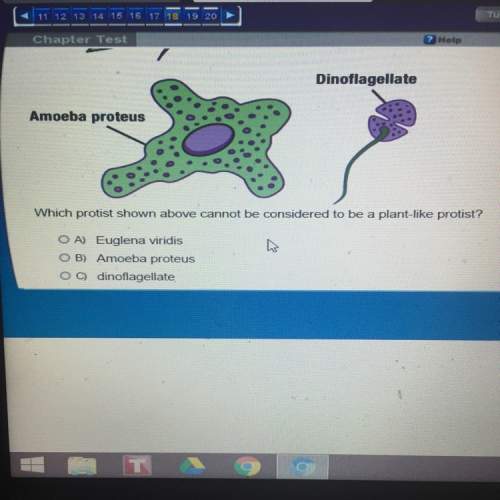
Biology, 28.05.2021 01:00 chrisssrutter
In an epinephrine-triggered signal transduction pathway, how would cellular
response most likely be affected if epinephrine could not bind with the receptor
protein?
G proteins would remain inactive and prevent signal amplification from
occurring.
Nonspecific signaling would occur, and epinephrine would bind to different
receptors.
Signal amplification would occur in the extracellular fluid rather than inside the
cell.
The cell could not receive termination signals and carry out inactivation.

Answers: 3


Other questions on the subject: Biology

Biology, 21.06.2019 21:30, irishdreamer0689
List the advantages and disadavantages of the switch from persistent chlorinated hydrocarbon pesticides (such as ddt) to nonpersistent organophosphate pesicides. have the benefits of the switch outweighed the disadvantages? explain.
Answers: 3


Biology, 22.06.2019 06:00, dshood6599
Adrought killed all the plants in an agricultural farmland. gradually, due to wind and some birds for. nearby areas, new plants started sprouting l. what stage of succession was taking place in the farmland? a) competition b) nudation c) ecesis d) reaction e) migration
Answers: 2

Biology, 22.06.2019 10:00, wolfiewolffromsketch
Which of the following human activities resulted in the growth of the north american deer population?
Answers: 1
You know the right answer?
In an epinephrine-triggered signal transduction pathway, how would cellular
response most likely b...
Questions in other subjects:

Mathematics, 18.11.2020 09:00

History, 18.11.2020 09:00




English, 18.11.2020 09:00


Mathematics, 18.11.2020 09:00

Mathematics, 18.11.2020 09:00

English, 18.11.2020 09:00




